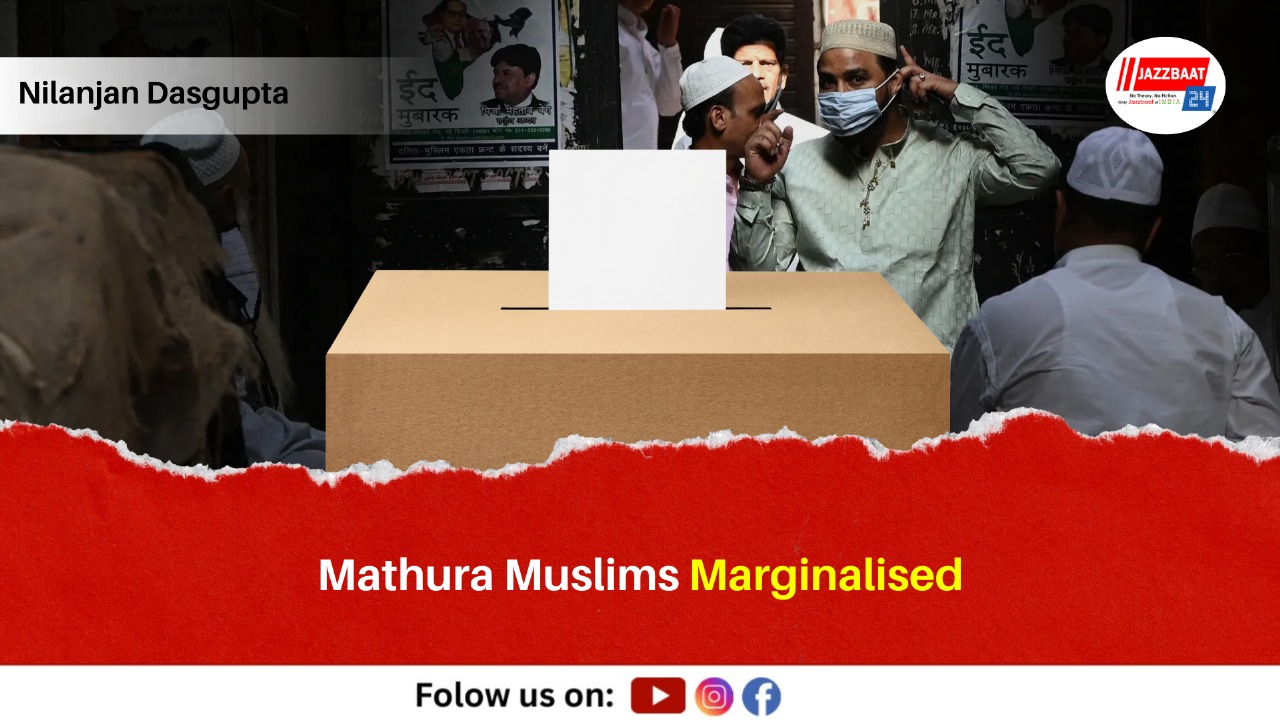Mathura Once known for its shared traditions and harmony, Mathura today reflects a deepening divide between its Hindu and Muslim residents. Over the past few years, a series of administrative actions and social shifts have left many Muslims struggling to hold onto their livelihoods, homes, and religious spaces a situation locals describe as a slow erasure of identity.
The turning point came in September 2021, when the Uttar Pradesh government declared 22 wards of the Mathura-Vrindavan area as “pavitra teerth sthals” (holy pilgrimage sites). The move banned the sale of liquor and non-vegetarian food, resulting in mass cancellations of licenses for meat shops and restaurants. Among those affected was Afroz Alam, who ran a successful restaurant for over a decade before being forced to shut down. Dozens of families dependent on this trade were left jobless overnight.
Locals say that the ban disproportionately targeted Muslim butchers and eatery owners. “This wasn’t about holiness; it was about pushing Muslims out of the city’s economic heart,” said a vendor who lost his license. The city’s Manoharpura slaughterhouse has since become a garbage dump a symbol of the decay of livelihoods once sustained by it.
Beyond business, Mathura’s Muslims say they face harassment and discrimination in everyday life. Mujeeb Ur Rehman, a local scholar, recalls being denied a seat on a bus simply because he was Muslim. Another resident, Altaf, wears a saffron scarf for “protection” from being attacked. Police detentions over trivial issues such as carrying a kilo of chicken have created a climate of fear, pushing many Muslims to self-censor their food habits.
Urban neglect has added insult to injury. The Ahle Muslimeen Kabristan, a Muslim graveyard in Manoharpura, now sits beside a government garbage dump despite clear laws requiring a 50–100 metre buffer from religious places. Similarly, a public toilet built near the Gulshan E Raza Masjid has disrupted the area’s sanctity. Locals say these are not oversights but part of a pattern of deliberate disregard.
Religious restrictions have deepened the sense of exclusion. After 2021, loudspeakers for azaan (call to prayer) were banned following petitions from Hindu groups, even though Hindu hymns reportedly continue on loudspeakers. The move, Muslims say, silenced a centuries-old soundscape.
The pattern extends to housing too. In 2023, authorities demolished over 100 homes in Mathura’s Nai Basti, allegedly for a railway project. Residents like Chandni and Iqbal, who had valid papers, were left homeless and the promised development never began. “They call it development, but it’s displacement,” said another resident, Aijaz.
For many, the message is clear: Mathura, once a symbol of coexistence, is being reshaped into a city where Muslims are made to feel unwelcome. As advocate Madhuvan Dutt Chaturvedi puts it, This isn’t about faith it’s about politics.
